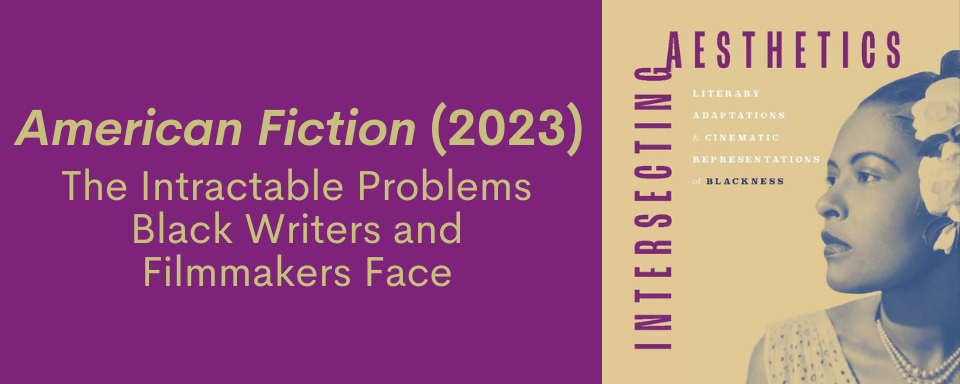
American Fiction (2023)
The Intractable Problems Black Writers and Filmmakers Face
By Charlene Regester, Cynthia Baron, Ellen C. Scott, Terri Simone Francis, and Robin G. Vander
In American Fiction, Cord Jefferson’s Oscar-nominated film based on Percival Everett’s blistering novel Erasure (2001), a Black American writer (Jeffrey Wright) strives to publish meaningful Black literature, only to discover that the white-dominated publishing industry is invested in fabrications of Black life that traffic in sex, violence, and offensive language as signifiers of “authentic blackness.” The film’s complex depiction simultaneously sustains and exposes dominant society’s distorted conception of blackness. It implies that even exceptional Black Americans cannot escape the trauma associated with blackness, but shows that it takes the victims of racism to force whites to see themselves.
Everett now joins the group of Black American writers with work adapted to the screen. Along with well-known writers like Alice Walker (The Color Purple) and Toni Morrison (Beloved), authors who created the foundation for contemporary Black film adaptations include Paul Laurence Dunbar, Charles Waddell Chesnutt, Wallace Thurman, Zora Neale Hurston, Willard Motley, Richard Wright, and Frank Yerby. These writers paved the way for subsequent Black writers and filmmakers who include Gordon Parks, Melvin Van Peebles, Walter Moseley, and Carl Franklin. These and other twentieth-century artists are featured in the edited collection Intersecting Aesthetics: Literary Adaptations and Cinematic Representations of Blackness. It is one of the few books about Black film adaptations, covering just a fraction of the relevant themes, complexities, and aesthetic strategies. Yet it provides a context for Erasure and American Fiction, which belong to literary and filmic traditions that have long sought to give expression to African American ideas and experiences.


Comments